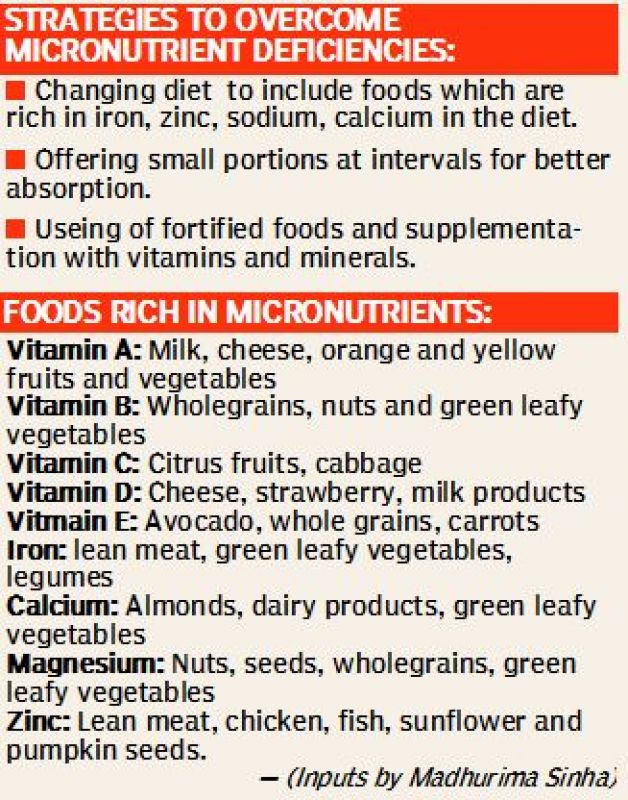Mega role of micronutrients

Hyderabad: According to a study published in the Indian Journal of Paediatrics, thousands of children below five years of age die due to deficiency of micronutrients in their diet prompting healthcare professionals to insist that micronutrients be included in children’s diets for development of a strong immune system.
Micronutrients are vitamins and minerals such as iron, vitamin A, iodine and zinc that the body needs. Paediatricians say that targeted interventions for controlling the deficiency have reached only 10 to 15 per cent of the child population.
Dr Hari Krishna, senior paediatrician, said, “Micronutrients contribute directly and indirectly to child survival and hence it is important to provide children the right foods so that during their infancy they are able to deal with the innumerable viruses, bacteria and diseases attacking them.”
The most debilitating diseases are diarrhoea and pneumonia — the leading cause of death in children below five years of age. Says Dr J Chabria, senior nutritionist, “Grain and plant diets are high in nutrients such as carbohydrates, fats and proteins. But they are low in micronutrients such as iron, zinc, sodium and others required to deal with deficiencies. Infants require nutrient-rich food as their stomach size is small. The food they eat must meet their micronutrient requirements."
Micronutrients like iron, zinc, selenium and folic acid are required for healthy brain growth both in the womb and also in the first six months of life. The brain grows till two years of age and for that reason ensuring the right foods in the first 1,000 days of life is crucial.
Iodine deficiency is found to cause intellectual disability while vitamin A deficiency continues to be the cause for preventable blindness in children.
Nutritionist Madhurima Sinha explained, "Iodine deficiency is one of the major reasons for diminished mental capacity and increased absenteeism in children, which leads to lower academic achievement. Micronutrient malnutrition is now being identified in the clinical set-up and parents are advised to change their food patterns so that the child can get the required nutrients for better growth."


